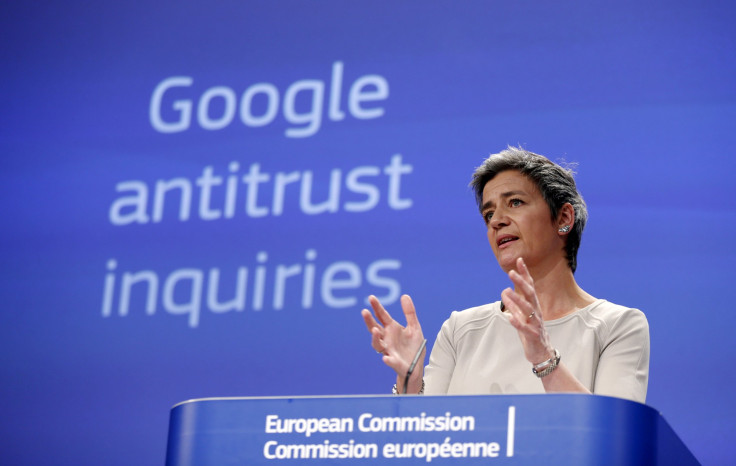Google At Risk For $7.8 Bn Fines If Found Guilty Of Manipulation

Google could share a similar fate with Microsoft should the European Commission, or EU, rule that Google ought to be fined by more than U$6 billion ($7.8 billion) for violating EU’s anti-trust rules. Google has been accused by EU of possibly stifling competition and harming consumers among others. In a Statement of Objections issued against Google, EU alleged the tech giant took advantage of its regnant position in the markets for general internet search services in the European Economic Area.
Google, according to the Statement of Objections, systematically favoured its own comparison shopping product in its general search results pages. In EU’s investigation that began in November 2010, it concluded preliminarily that by showing Google Shopping — formerly known as Google Product Search — more prominently on the screen, it was systematically affording its own product favourable treatment. What makes such manoeuver prohibitive of EU’s anti-trust rules is that, in a nutshell, its effect is an artificial diversion of traffic from competitor’s comparison shopping services thereby thwarting the latter from competing naturally on the market.
Consequently too, the consumers are deprived of knowing the natural most relevant results in their queries. EU dubbed such fact as detrimental to consumers and stifling of innovation. It was the opinion of the commission that Google should maintain equal treatment both of its own comparison shopping service and the competitors’. Though Google previously submitted its commitment proposals to redress concerns from rivals, the same were not sufficient according to EU.
Other than EU’s findings that Google allegedly breached the former’s anti-trust rules, EU has also formally initiated an anti-trust probe on Google’s conduct concerning the latter's Android mobile operating system. The core of its investigation is to ascertain whether Google has manoeuvred to its advantage its leading position in operating systems, services and applications for smart mobile devices; or has entered into anti-competitive agreements.
"The Commission's objective is to apply EU antitrust rules to ensure that companies operating in Europe, wherever they may be based, do not artificially deny European consumers as wide a choice as possible or stifle innovation," Margrethe Vestager, EU’s in-charge of competition policy, said in the statement.
Vestager added that smartphones, tablets and similar devices play a growing role in many people’s everyday lives and she wants to make certain the markets in that particular area can flourish without anti-competitive constraints imposed by any company. It must be stated, nevertheless, that sending the Statement of Objections to Google does not imply the latter's guilt. In fact, Google is afforded the opportunity to convince EU to the contrary. However, if the investigation will confirm EU’s concerns, Google will have to change the way it does business in Europe. In the past decade, Microsoft was forced to pay the fine imposed by EU amounting to U$2.34 billion for almost similar offence and has since not recovered, Reuters reports.
For comments or feedback on the article, contact the writer at kizmet@ymail.com.





















